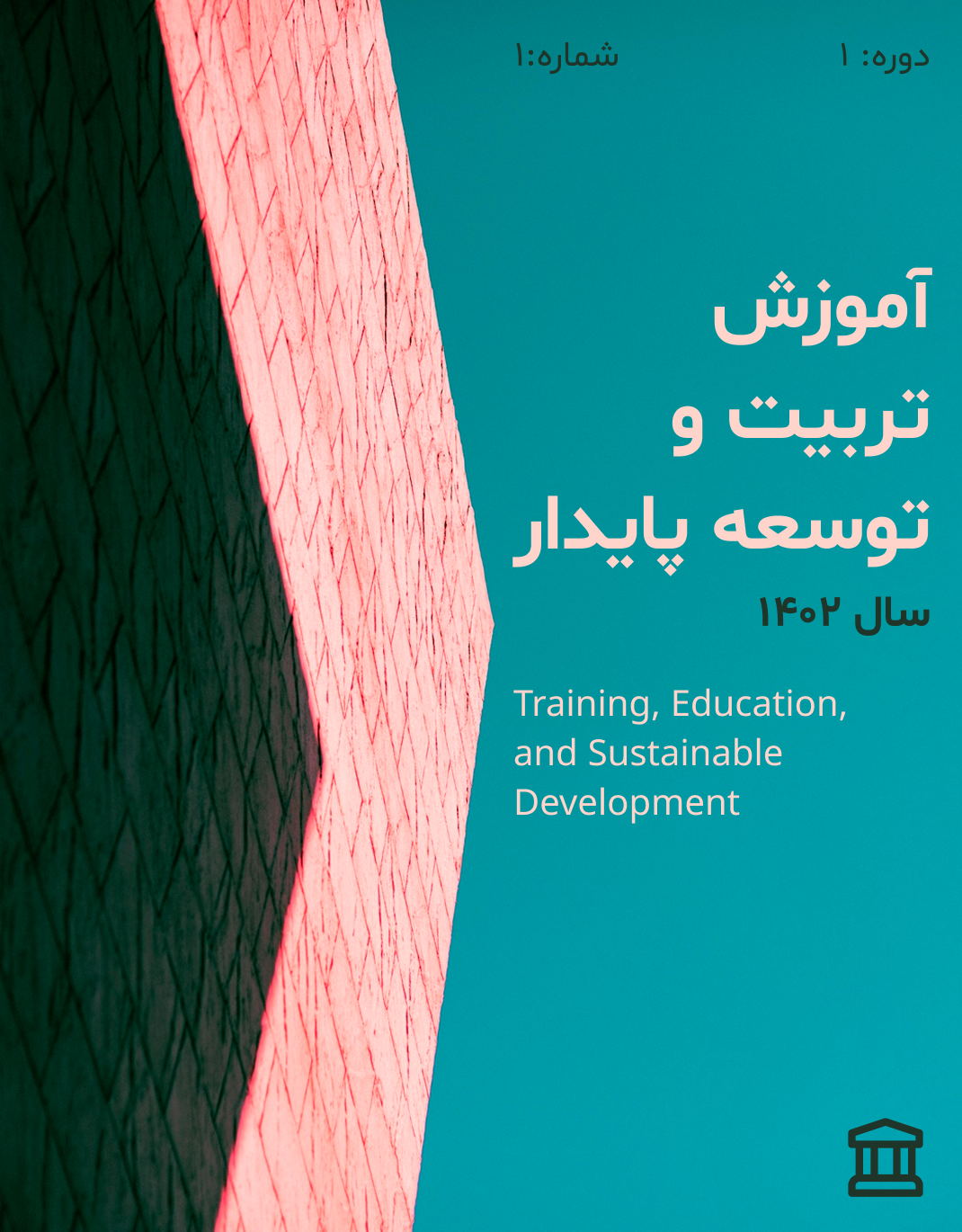تحلیل مضمون موانع نهادینهسازی ارزشهای اخلاقی در آموزش رسمی
کلمات کلیدی:
ارزشهای اخلاقی, آموزش رسمی, موانع نهادی, تحلیل کیفی, ایرانچکیده
این پژوهش با هدف شناسایی و تحلیل موانع نهادینهسازی ارزشهای اخلاقی در نظام آموزش رسمی ایران انجام شده است. این مطالعه کیفی با استفاده از روش تحلیل محتوای قراردادی انجام شد. دادهها از طریق مصاحبههای نیمهساختاریافته با ۲۲ نفر از معلمان، مدیران و کارشناسان آموزشی در تهران جمعآوری شد. نمونهگیری بهصورت هدفمند و تا رسیدن به اشباع نظری ادامه یافت. تحلیل دادهها با استفاده از نرمافزار NVivo انجام شد. چهار مقوله اصلی بهعنوان موانع نهادینهسازی ارزشهای اخلاقی شناسایی شدند: (۱) ضعف ساختاری و نهادی، (۲) ناکارآمدی محتوای آموزشی، (۳) چالشهای مرتبط با معلمان و کادر آموزشی، و (۴) موانع فرهنگی و اجتماعی. هر یک از این مقولهها شامل زیرمقولههایی بودند که از تحلیل مصاحبهها استخراج شدند. برای مثال، در حوزه ساختاری، نبود سیاستگذاری یکپارچه و ناپایداری مدیریتی از موانع مهم محسوب میشوند. در بعد محتوایی، مفاهیم اخلاقی در محتوای آموزشی انسجام ندارند و غالباً کلی و انتزاعی هستند. در زمینه نقش معلمان، ضعف تربیت حرفهای و ناهماهنگی بین رفتار معلمان و پیامهای اخلاقی از موانع اصلی بودند. در سطح فرهنگی و اجتماعی، ترویج ضد ارزشها در رسانهها و رشد فردگرایی از چالشهای مهم بودند. نهادینهسازی ارزشهای اخلاقی در آموزش رسمی نیازمند توجه به ابعاد ساختاری، محتوایی، انسانی و فرهنگی است. بدون در نظر گرفتن این پیچیدگیها، تلاشها در این زمینه ممکن است ناکام بمانند.
دانلودها
مراجع
Benninga, J. S., Berkowitz, M. W., Kuehn, P., & Smith, K. (2003). The relationship of character education implementation and academic achievement in elementary schools. Journal of Research in Character Education, 1(1), 19–32.
Berkowitz, M. W., & Bier, M. C. (2005). What works in character education: A research-driven guide for educators. Character Education Partnership.
Campbell, E. (2003). The ethical teacher. McGraw-Hill Education.
Davies, I., Gregory, I., & Riley, S. (2002). Education for citizenship and the teaching of democracy in schools. International Journal of Educational Research, 37(1), 123–139.
Fattahi, R. (2019). An analysis of obstacles to moral education in Iran’s schools. Journal of Educational Innovations, 18(3), 47–65.
Halstead, J. M., & Taylor, M. J. (2000). Learning and teaching about values: A review of recent research. Cambridge Journal of Education, 30(2), 169–202.
Kohlberg, L., & Hersh, R. H. (1977). Moral development: A review of the theory. Theory into Practice, 16(2), 53–59.
Lapsley, D. K., & Narvaez, D. (2006). Character education. In W. Damon & R. M. Lerner (Eds.), Handbook of child psychology (6th ed., Vol. 4, pp. 248–296). Wiley.
Lickona, T. (1996). Eleven principles of effective character education. Journal of Moral Education, 25(1), 93–100.
Narvaez, D. (2006). Integrative ethical education. In M. Killen & J. Smetana (Eds.), Handbook of moral development (pp. 703–733). Psychology Press.
Noddings, N. (2002). Educating moral people: A caring alternative to character education. Teachers College Press.
Nucci, L. P. (2001). Education in the moral domain. Cambridge University Press.
Patton, M. Q. (2002). Qualitative research and evaluation methods (3rd ed.). Sage Publications.
Walker, L. J., Pitts, R. C., Hennig, K. H., & Matsuba, M. K. (2011). Reasoning about morality and real-life moral problems. In D. Narvaez & D. K. Lapsley (Eds.), Moral development, self, and identity (pp. 42–74). Erlbaum.



